By: Mark McCrindle
In a rapidly evolving world, the ability to shape and adapt the educational environment is crucial for educators, parents, and students alike.
With changing demographics, technological advancements, and the drive for academics as well as personal development, the future of education holds both exciting opportunities and complex challenges. Here’s how we can prepare for a reimagined education system by 2035.
Education is pivoting to keep pace with changing students, evolving parental expectations, and a fluctuating operational climate. Recognising that the future is not a predetermined endpoint but an opportunity for transformative action, can empower educational leaders to proactively shape this dynamic landscape.
Balancing a Focus on Wellbeing and Academics
As societal focus on mental health deepens, educational institutions are striving to find a balance between supporting student wellbeing and maintaining academic rigor. We found that 75% of educators have noticed increased tension between these two priorities over the past five years. Addressing classroom management challenges and discipline disparities are vital steps toward achieving this balance.
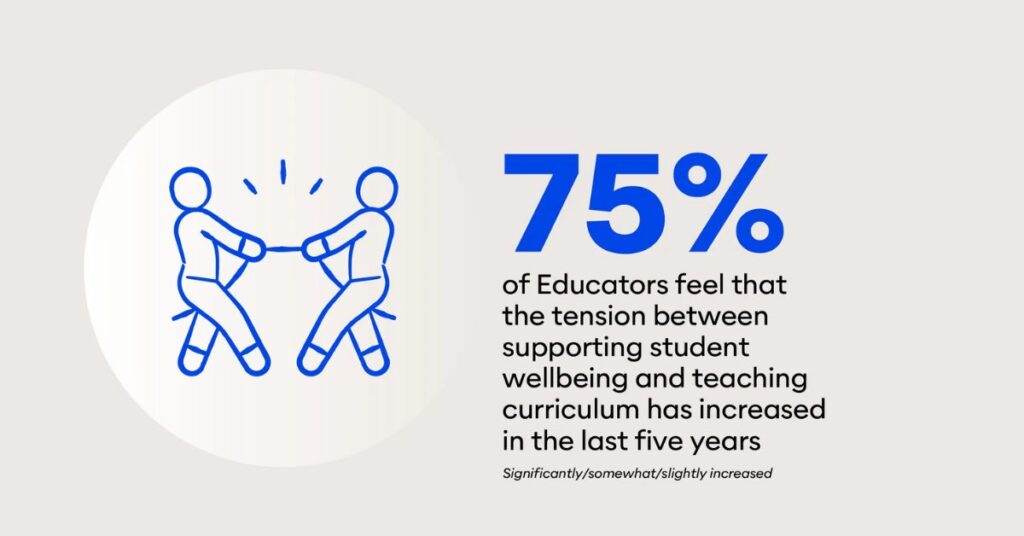
Insights from parents, students and educators suggest differing attitudes towards discipline. Around half of parents and educators believe their school has a healthy approach to discipline. Students are a little lower at 39%. Students, however, are more likely than parents and educators to believe their school is much/somewhat too strict with discipline.
A quarter of educators believe the school is much/somewhat too relaxed with discipline, making them the largest stakeholder to hold this perspective. When the data is cut by government and non-government school educators, government school educators (29%) lean towards feeling their school is too lenient compared to their non-government peers (19%). Good classroom management remains essential for facilitating learning and creating an optimal academic environment.
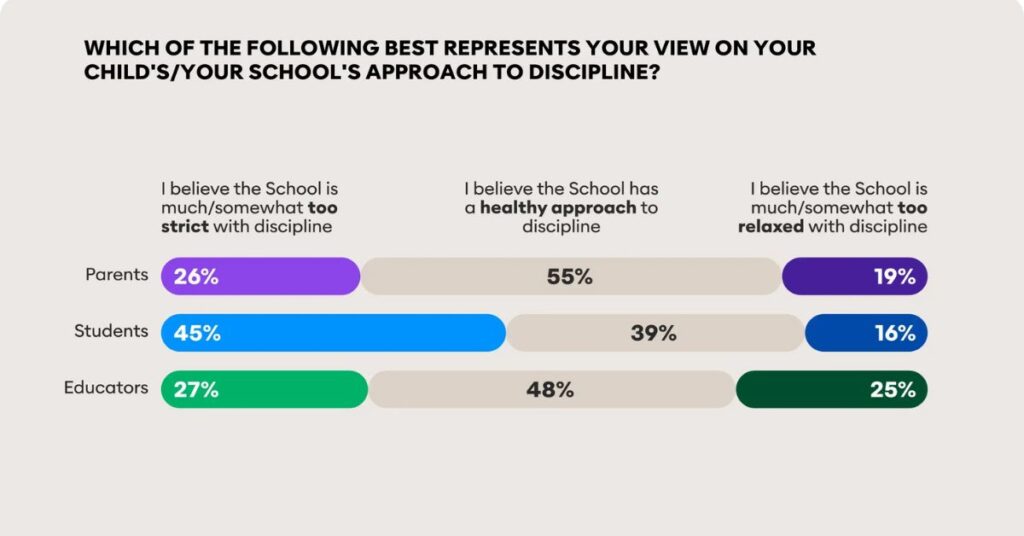
Increasing Academic Focus in a Wellbeing Era
Building upon the topic of discipline and classroom management, is a renewed focus on academic development among school communities.
The majority of parents (70%) , students (68%) and educators (65%) believe it is more important to teach for the academic development of the student, compared to around 30% who believe it is more important to focus on the holistic development of the student.
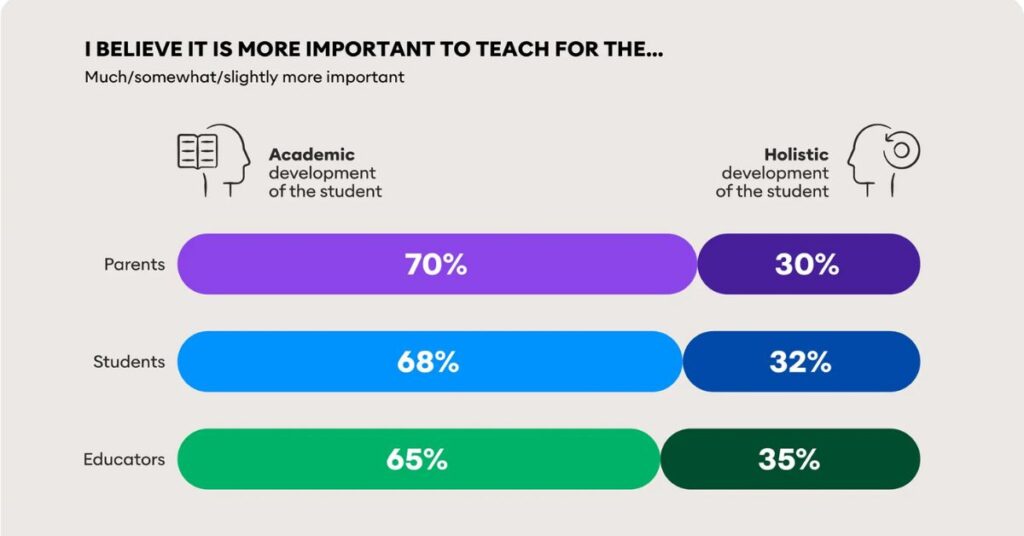
This is a shift from 2023 when just 34% of teachers believed it was more important to teach for the academic development of students, and 66% prioritised the holistic development.
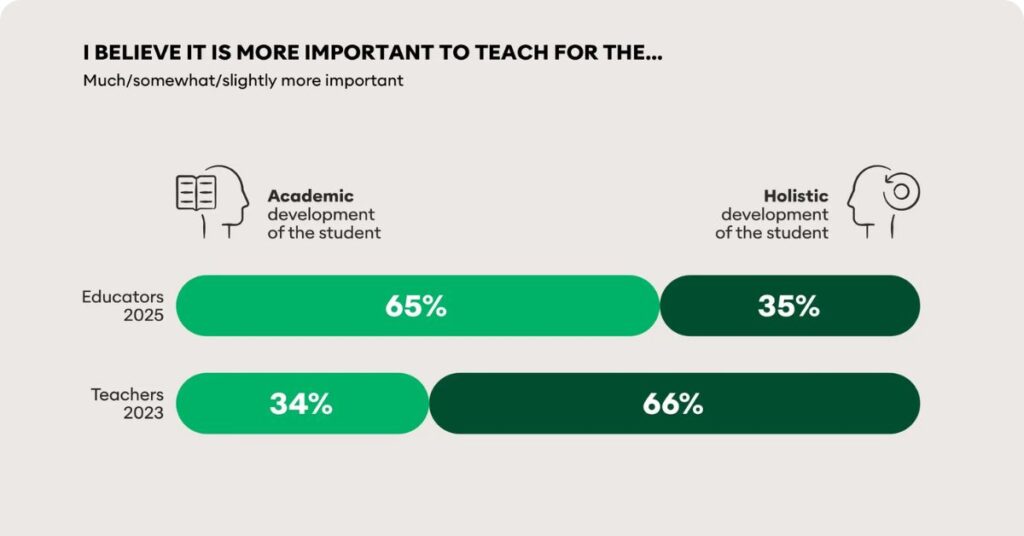
While there is still a desire to support student wellbeing and help them navigate their mental health, it seems that the focus on academics has declined too much, and that there is a shift among school communities to bring the academic aspect of education back into focus.
Learning in the digital age
As technology becomes increasingly integral to education, the need for strategic implementation is paramount. The digital revolution, spearheaded by tools like generative AI, presents both opportunities and challenges. While these technologies can aid learning, it’s crucial to ensure they supplement rather than replace human-driven educational experiences. A balanced approach that fosters critical thinking remains essential.
Despite general optimism about technology’s effective use in education, there is simultaneously a concern over its potentially excessive role. The priority is to find the right balance and ensure that technology aids without overwhelming the teaching process.
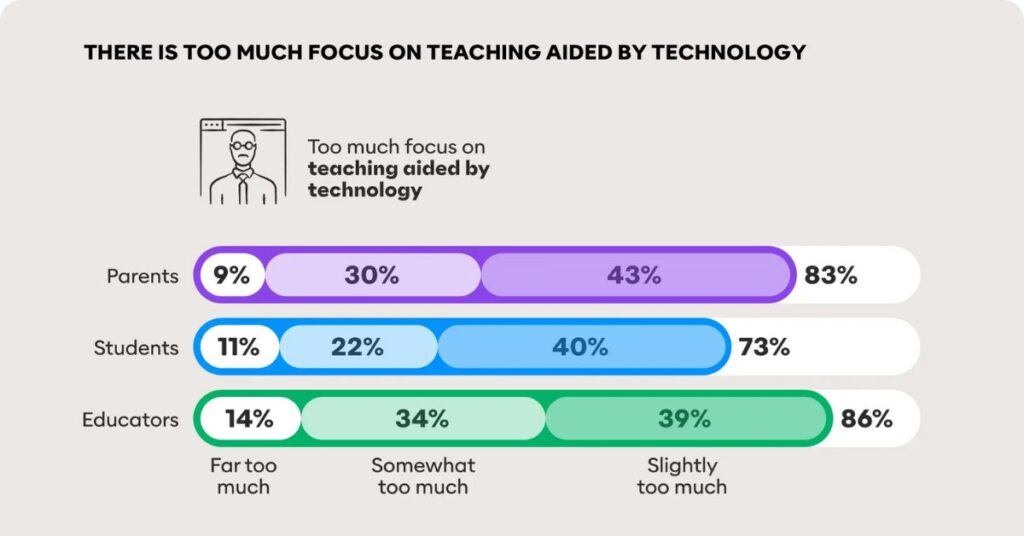
There’s no doubt that AI is playing a part in the classroom. And despite the majority of parents, students and educators agreeing that there is too much focus on teaching aided by technology, parents and students shared with us that a key opportunity they see is the personalisation of the learning experience through AI. Educators also agreed that it could help identify and address learning gaps.
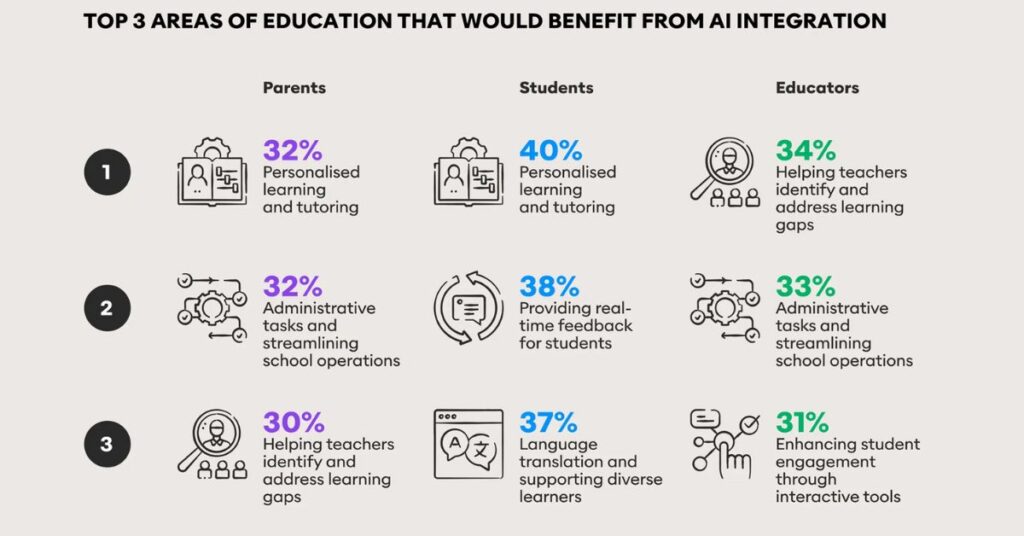
Reclaiming Community Through Education
Interestingly, the increasing influence of technology and individualised digital learning can inadvertently weaken communal bonds. Educators, parents, and students alike recognise the inherent value in shared experiences and real-world interactions. Upholding these connections is vital as we look to the future, with many advocating for measures like banning smartphones in schools to foster physical community and collective learning.
Transition to Online Learning: Opportunities and Considerations
The flexibility of online learning has gained significant traction, with numerous educators, students, and parents open to virtual schooling. However, blending online platforms with in-person interactions is critical to preparing students for real-world engagements and careers.
When it comes to online schooling, we found that nine in ten educators (90%) and students (89%) are open to it (extremely/very/somewhat/slightly open), compared to 77% of parents.
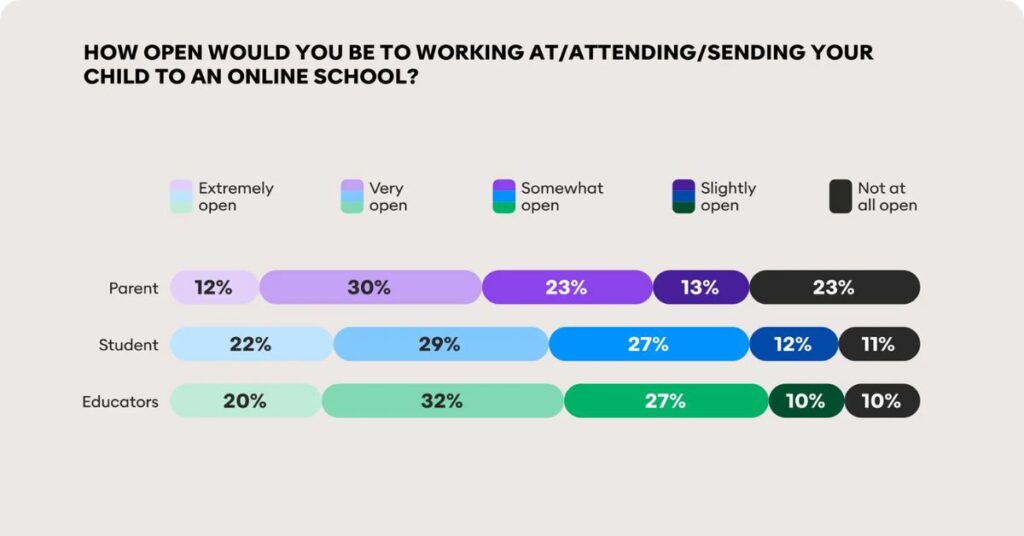
While online schooling may present benefits, there are also trade-offs to consider. Stakeholders noted benefits such as greater focus and flexibility, to challenges such as less socialisation and too much screen time.
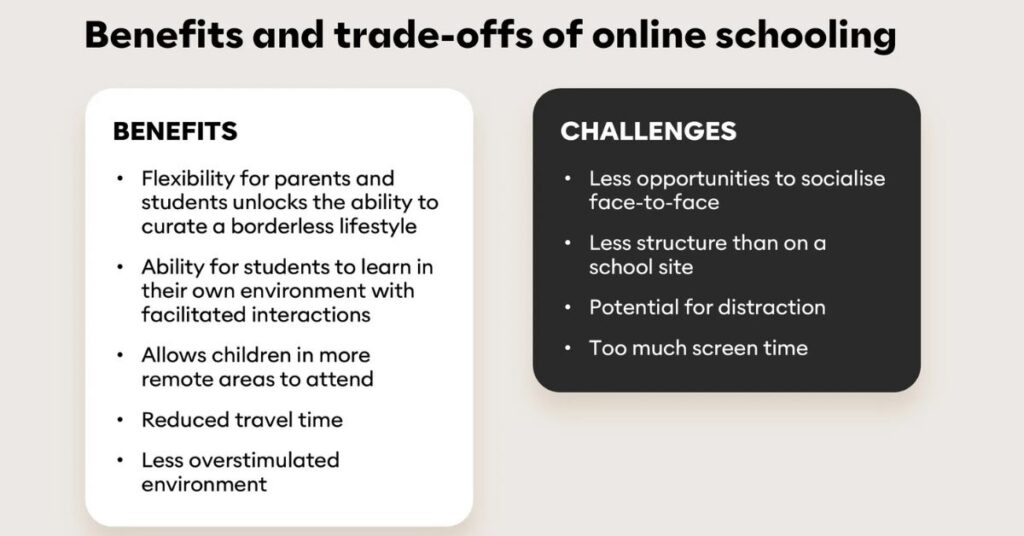
The Importance of Lifelong Learning
The modern career landscape demands adaptability, with shorter degree relevancy and career volatility becoming the norm. Thriving in this future requires critical thinking, adaptability, and the ability to seamlessly integrate information into actionable insights. Prioritising these skills will support students as they embark on ever-changing, dynamic career paths.
Key Considerations for Educational Leaders
As leaders navigate the education landscape towards 2035, the agency lies in the hands of educational leaders. Here are some ways leaders can respond.
- Develop a robust parent engagement strategy: This is crucial for building trust and cooperation, which enhances the learning environment.
- Foster a safe and resilient environment: A supportive atmosphere encourages students to grow, take risks, and learn effectively.
- Approach AI with optimism and caution: Integrating AI should enhance learning experiences without undermining the human elements crucial to education.
By embracing change with optimism and wisdom, we can drive a future where technology, academic excellence, and human connection coexist to foster generations of critical thinkers and lifelong learners.
Article supplied with thanks to McCrindle.
About the Author: McCrindle are a team of researchers and communications specialists who discover insights, and tell the story of Australians – what we do, and who we are.
Feature image: Canva





